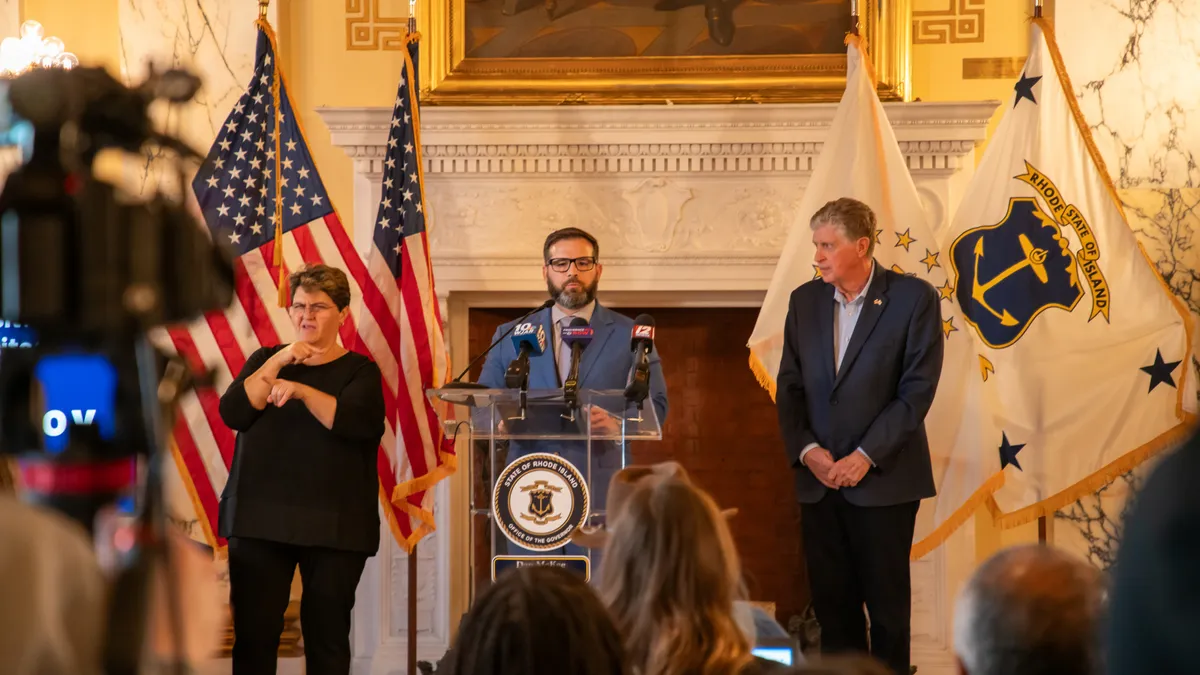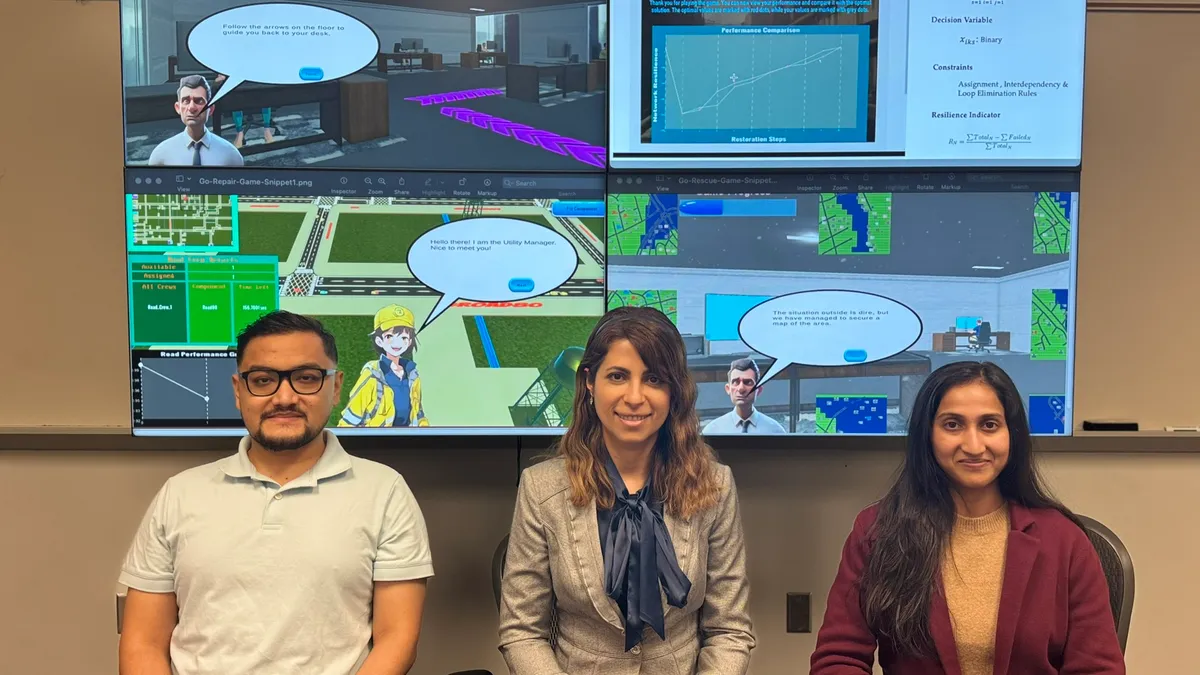Sidewalk Labs' decision to end its involvement in the Quayside project in Toronto could mean a renewed emphasis on community engagement and a step away from tech-driven solutions, a consultant involved in the project told Smart Cities Dive.
Sidewalk Labs CEO Daniel Doctoroff said in a blog post last week that the "unprecedented economic uncertainty" made it "too difficult" to continue financially viable work on the project on the Toronto Waterfront. A 1,500-page master plan released last June put the costs of the 12-acre project at $1.3 billion.
That decision halted an often-controversial project that came under fire from elected leaders and residents for what some saw as the invasion of intrusive technology into their everyday lives. It spawned what many called a "techlash" against big tech companies asserting themselves in such a way, and has led to a belief that future projects must be less focused on sensors and data analytics and instead look to partner better with everyone.
"I think the Sidewalk Labs experience for Toronto raised a lot of really important questions that can't just be answered by the engineers and urban planners," Alex Ryan, head of MaRS Solutions Lab and leader of a city initiative to safeguard citizen data from privacy breaches, told Smart Cities Dive. "It has to really involve all the citizens in addressing these questions about what kind of cities we want to live in in the future."
That "techlash" came as locals objected to proposals around data management, which had been one of its most controversial aspects. Sidewalk Labs previously proposed a "data trust" run by a third party then backed off. But it left a bad taste: the #BlockSidewalk movement and others said it represented too much of an intrusion into people’s everyday lives by the private sector.
When Sidewalk Labs pulled out, those opponents were delighted.
"This is huge, we are sending a message to Silicon Valley on behalf of all those around the world who are fighting big tech in their cities," Julie Beddoes, an organizer with #BlockSidewalk, said in a statement at the time. Thorben Wieditz, another organizer, said the project's nixing was a "testament to the principled and courageous stance taken by citizens to protect Toronto from Google’s corporate takeover."
The #BlockSidewalk campaign continually raised concerns over data privacy with the project, and also was a vocal opponent of Waterfront Toronto partnering with Google. The group repeatedly said they wanted local companies to be involved in the development, and said Google's reputation of skirting antitrust laws and unduly wielding its influence and money over local politicians.
"I think the Sidewalk Labs experience for Toronto raised a lot of really important questions that can't just be answered by the engineers and urban planners."

Alex Ryan
MaRS Solutions Lab
Ryan said that level of opposition showed how tech companies and the public sector must be more mindful of working with the community to address any concerns they may have. That, he said, could also make more people more invested in the kind of smart city they are looking to create.
"I would suggest a shift from driving from a data perspective to more driving from a democratic engagement and legitimacy perspective," Ryan said. "How do you engage citizens more as co-designers of the spaces that they live, work and play in?"
Some of Sidewalk Labs' initiatives like curbside management through Coord could be seen elsewhere as the company commercializes some of its most unique ideas, so the project could live on in some form.
Meanwhile, Waterfront Toronto said it still plans to proceed with developing Quayside, although there are no specifics on a timeline at this stage. Ryan said it could still be developed as an innovation district, only this time using what he called a "coalition of Canadian innovators," rather than one tech company from outside the country.
In the next stages of any development, especially one that relies on tech companies to lead the way on innovation, Ryan said it will be key for governmental bodies to delineate what everyone’s role is, given the perception that Sidewalk Labs "overstepped the boundaries of what a private company should be doing."
"Really establishing what is the right role for government, what is the right role for developers, what is the right role for the private sector, making sure that each party has their role to play: I think that's the kind of clarity that's going to be important so that there's not the same suspicion of the private developer in a future bid," Ryan said.
The issues that smart cities are still trying to solve remain, however. Ryan said they will still be priorities for local leaders. The upfront investment may be difficult, but the long-term benefits should help recoup those costs and make cities more livable, he said.
"The big challenges that are motivating the smart city movement, creating a lower carbon footprint, creating affordable housing stock, more inclusive communities, all these demands are still facing all our major cities," Ryan said. "I think still the outcomes remain unchanged in terms of what we would like to achieve."




















